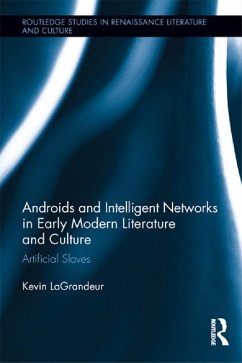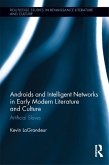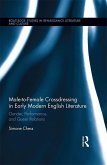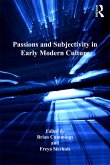This book explores the creation and use of artificially made humanoid servants and servant networks by fictional and non-fictional scientists of the early modern period. Beginning with an investigation of the roots of artificial servants, humanoids, and automata from earlier times, LaGrandeur traces how these literary representations coincide with a surging interest in automata and experimentation, and how they blend with the magical science that proceeded the empirical era. These representations eerily prefigure modern robots, androids, and artificially intelligent networks, and the art that is responsible for their creation blurs the edges between magic and science in a way that resonates especially with modern notions of cybernetics. In the instances that this book considers, the idea of the artificial factotum is connected with an emotional paradox: the joy of self-enhancement is counterpoised with the anxiety of self-displacement that comes with distribution of agency. In this way, the older accounts of creating artificial slaves are accounts of modernity in the making-a modernity characterized by the project of extending the self and its powers, in which the vision of the extended self is fundamentally inseparable from the vision of an attenuated self. This book discusses the idea that fictional, artificial servants embody at once the ambitions of the scientific wizards who make them and society's perception of the dangers of those ambitions, and represent the cultural fears triggered by independent, experimental thinkers-the type of thinkers from whom our modern cyberneticists descend.
Dieser Download kann aus rechtlichen Gründen nur mit Rechnungsadresse in A, B, BG, CY, CZ, D, DK, EW, E, FIN, F, GR, HR, H, IRL, I, LT, L, LR, M, NL, PL, P, R, S, SLO, SK ausgeliefert werden.
'...an ambitious volume... [that] complements recent scholarship on automata in early modern literature, and will be of interest to scholars working on that topic, as well as the history of early modern science and art history.' - Renaissance Quarterly
'Androids and Intelligent Networks in Early Modern Literature and Culture is a lively and stimulating odyssey into a time when the engineer and the magician inhabited mental worlds that overlapped with another in a way that we might like to believe has long since vanished. It is to LaGrandeur's credit that this book helps us to recreate those worlds, while also pointing out ways in which they have not so much disappeared, but have become sublimated within a new language of control and artifice.' - Jonathan Sawday, The American Historical Review
"...in this fascinating and original book, Kevin LaGrandeur... offers an original and thought-provoking perspective that has the bracing effect of 'making strange' these very familiar texts and... by its end, few will dispute that 'we have no monopoly, in our age, on the idea of blending the traits of the human and the machine or on the notion of creating artificial slaves'" - Science Fiction Studies
'Androids and Intelligent Networks in Early Modern Literature and Culture is a lively and stimulating odyssey into a time when the engineer and the magician inhabited mental worlds that overlapped with another in a way that we might like to believe has long since vanished. It is to LaGrandeur's credit that this book helps us to recreate those worlds, while also pointing out ways in which they have not so much disappeared, but have become sublimated within a new language of control and artifice.' - Jonathan Sawday, The American Historical Review
"...in this fascinating and original book, Kevin LaGrandeur... offers an original and thought-provoking perspective that has the bracing effect of 'making strange' these very familiar texts and... by its end, few will dispute that 'we have no monopoly, in our age, on the idea of blending the traits of the human and the machine or on the notion of creating artificial slaves'" - Science Fiction Studies









